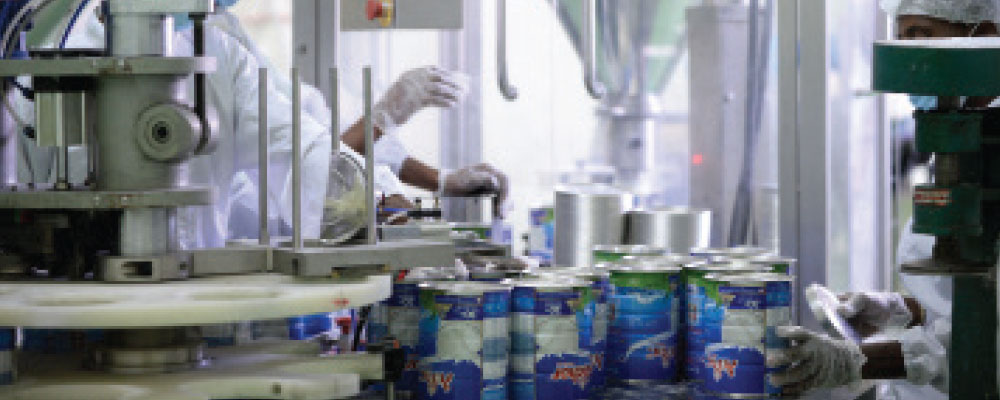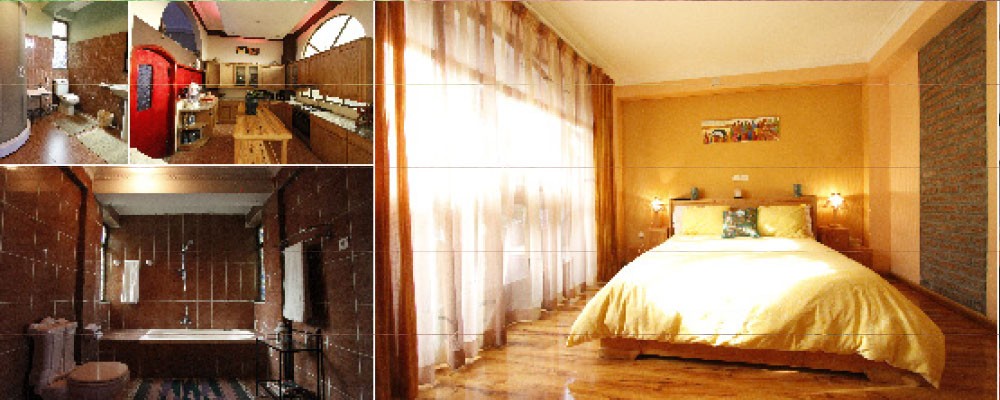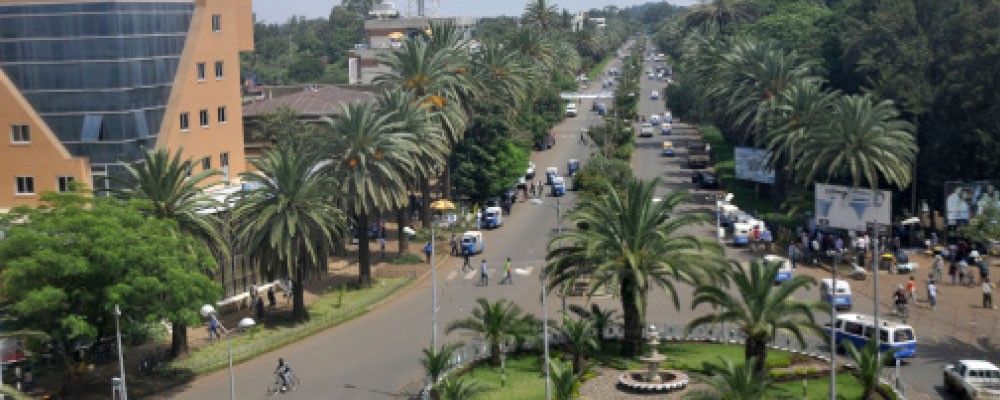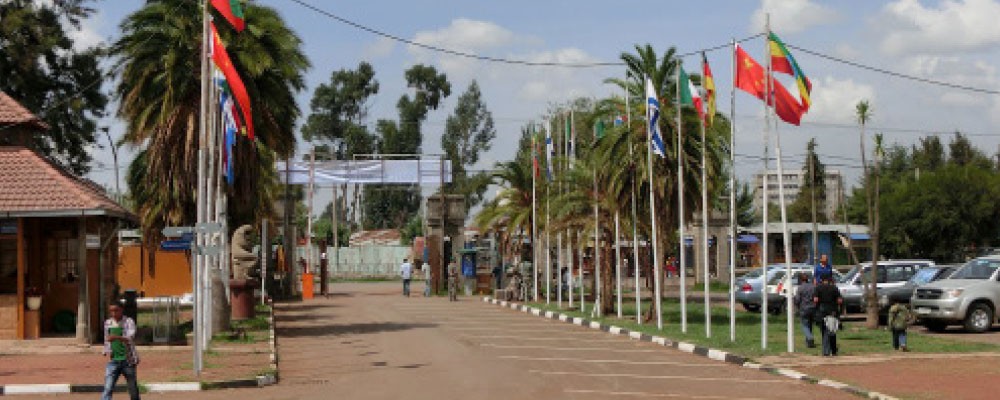Food fortification – the process of adding additional nutrients to certain food products to increase their health benefit – has been common in developed countries for decades. This practice, however, is relatively new to Ethiopia – and the government is taking measures to ensure that their food fortification programme succeeds. The country hopes to fortify key food items like flour, milk and edible oils. Advocates of fortification say that it has great potential for combatting malnutrition– a condition that affects nearly 3 million people throughout the country. Others, however, note that Ethiopia has a long way to go in terms of developing the necessary infrastructure to manage the lofty goals it has set for itself. EBR’s Fasika Tadesse spoke with industry insiders to learn more about the nuances of food fortification and the government’s plans to help bring its vision to fruition.
Tourism in Ethiopia is on the rise. Last fiscal year alone, nearly one million tourists visited the country – and the government plans to have that figure increase to 2.5 million by 2020. This growth, however, may not necessarily prove beneficial for Ethiopia’s hotel industry, as an increasing number of tourists prefer to stay in guest houses as opposed to hotels. According to one study, Ethiopia’s hotels average a 60Pct occupancy rate, despite the growth in the number of tourists each year. Many travellers note that their preference for guest houses is rooted in the fact that they offer a cheaper, more intimate alternative to star-rated hotels. Hoteliers in the country charge that these businesses need to be better regulated and managed. Consultants, however, say hotels need to reduce their costs if they don’t want to continually lose customers. EBR’s Fasika Tadesse spoke with tourists, government officials, hoteliers and guest house owners to learn more about the nuances of the debate.
Is the high cost of hotel rooms in Addis Justifiable?
According to a recently released report, Addis Ababa is the most expensive African city in which to book a stay in a quality hotel. This finding has generated a debate among hoteliers in the city – about the supply and demand for quality hotels. Some say that the country’s hotel industry is still growing and that its best years are yet to come. Others, however, say that more needs to be done to improve the quality and standards of promising hotels in the country. EBR’s Fasika Tadesse spoke with industry insiders to learn more about the on-going debate.
Though mobile technology has been relatively slow to come to Africa, data demonstrates that reality is quickly changing. A report by Political Feature Consultancy states that 90Pct of Africans will use mobile phones by 2017. In Ethiopia, the number of mobile phone subscribers has reached 32 million and that figure is likely to change fast, as on-going network coverage keeps growing. This has inspired several mobile phone manufacturers to establish operations in the country. The government says that this segment of the manufacturing sector is important to create jobs and save foreign currency. That is why it provides numerous incentives for companies engaged in the sector. Industry insiders, however, say foreign currency shortages and the illegal smuggling of mobile apparatuses – which controls 65Pct of the market – are threatening their operations. EBR’s Fasika Tadesse spoke with the involved parties about the promise and difficulties facing the sector.
A Man – and a Sector – at a Critical Juncture
EBR’s Fasika Tadesse spoke with Meshesha about this critical juncture, where NGOs, once seen as critical to Ethiopia’s development goals, hold a tenuous relationship with the government. Meshesha says there is a grave misperception about NGOs and the work they do in the country. The following is an excerpt:
Struggle to Penetrate the Burgeoning Liquor Market
Liquor consumption is on the rise in Ethiopia. According to data obtained from the Central Statistical Agency (CSA), imports of hard liquors reached 4.2 million kilograms in 2014 – that figure is way up from 1.6 million kilograms in 2010. In an attempt to capitalise on this growth and seize the buying power of consumers, local liquor manufacturers are becoming common in the country. However, many manufacturers complain that they are facing difficulties in getting the attention of local consumers. Customers, meanwhile, argue that some local liquor brands are often more expensive than imported brands. EBR’s Fasika Tadesse explored the issue further and offers this report.
A city unlocking its tourism potential
Tourism in Bahir Dar is on the rise. This is, in part, due to the natural beauty of the city and its cultural and historical treasures. As a result, the tourist flow and revenue generated has been increasing. In the past five years alone, the number of tourists has risen more than fourfold – from 37,166 in the 2009/10 fiscal year to 149,266 in the 2014/15 fiscal year. The jump has been good for the city, as it collected ETB332.8 million in tourism revenue in the just-ended fiscal year. Five years ago, the sector generated only ETB55.85million. The growing trend both in the number of tourists and revenue also means that businesses are flocking to Bahir Dar, to seize the city’s burgeoning reputation as a site of national sporting events and international conferences. EBR’s Fasika Tadesse visited Bahir Dar to learn more about the ascent of its tourism industry and about the hurdles the city has to overcome before it realises its full potential.
Holiday Bazaar Organizing Fees Push Companies to Look for Alternative Venues
Ethiopian holidays are often a time when Addis Ababa’s Exhibition Centre sees much activity. The Centre often hosts large bazaars in which vendors showcase their products and other items in an attempt to promote and sell their goods. In recent years, the price of organizing such events has skyrocketed – up to ETB12.6 million for a single holiday, which is significantly up from around ETB2 million in previous years. The increased costs for such events are attributed to the large influx of companies bidding to organise such events. Five years ago, around 10 companies used to bid to organise holiday bazaars; now that number has grown to 250. Equally, the fee vendors and pay has grown for more than tenfold. Industry insiders say that the growing demand for space at these bazaars warrants the price increase, while business owners say that the increased prices are taking a toll on companies looking to showcase their goods. EBR’s Fasika Tadesse spoke with both sides to understand the debate and offers this report.
More than four billion birr was not disbursed in nine months
Five years ago, the Development Bank of Ethiopia (DBE) announced that it planned to give out a large amount of loans to the manufacturing sector, which faced a lack of finances for years. Despite these stated efforts, many local investors argue that they’ve had difficulty in accessing finances. They say that the Bank is plagued by bureaucratic inefficiencies and that it tends to favour foreign investors. In fact, a closer look at the nine-month report of the Bank from the just-ended fiscal year shows that DBE had disbursed only 54Pct of what it planned. They claim that unsettled land issues of loan applicants, and their limited capacities to upfront 30Pct of the equity they need to get 70Pct financing were the major reasons for the Bank’s weak loan disbursement. DBE leaders say policy hurdles that the Bank faces, i.e., the limitation it not accept requests from Small and Micro Enterprises, have contributed to the reasons why a large sum of money has been idle this fiscal year. EBR’s Fasika Tadesse spoke with Bank officials and local investors to write why more than four billion birr was not disbursed to those who need it.
Why Are Local Contractors Lacking in Large-Scale Projects?
Despite the fact that the number of local contractors in Ethiopia has grown by leaps and bounds over the last 20 years, something seems to be amiss with regard to why they aren’t handling large-scale infrastructure projects. Take, for example, road construction projects. Between the 1997/98 and 2013/14 fiscal years, there were a total of 443 road projects being undertaken by foreign and local contractors. Of the total projects, Ethiopian contractors were responsible for 337, amounting to ETB54.9 billion. However, the foreign construction companies maintained dominance in terms of cost of the projects. They executed 106 road projects, worth ETB76.4 billion. Government officials say that local contractors don’t have the capacity to handle large-scale projects, while local contractors say they aren’t given a fair chance to compete with foreign companies. EBR’s Fasika Tadesse spoke with industry insiders to learn more about why local contractors aren’t handling large-scale projects.











